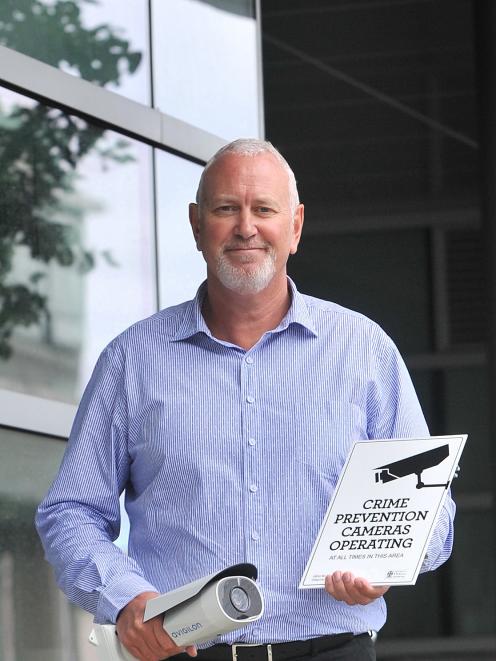The CCTV network has been in operation for some years, making student areas safer by reducing and deterring criminal behaviour, and helping to identify and prosecute offenders.

Campus policeman Senior Constable John Woodhouse said cameras were operated from the proctor’s office, where feeds were sent from the cameras to the Campus Watch control room.
Footage was held for 30 days before being over- written.
Only approved management staff could view recorded footage, and footage could not be used for addressing non-criminal student behaviour under the code of student conduct. Burglaries and assaults were a particular concern in North Dunedin and Snr Const Woodhouse said expansion of the CCTV network was welcomed.
"Unfortunately, too many students have fallen victim to opportunist criminals who take advantage of students’ trusting and innocent natures, and police continue to work hard on crime prevention messages around personal safely and flat security.
"In my experience, and from interacting with students, they have found them to be an excellent tool in preventing crime and making them feel safer in their communities," he said.
University of Otago emergency and business continuity co-ordinator Andrew Ferguson said North Dunedin residents around the university campus were being notified of the new cameras through Campus Watch staff going door to door, pamphlet drops, and media releases.
Some camera infrastructure was recently installed on university buildings.
The bulk of the cameras in public streets were expected to be installed on Aurora/DCC-owned power and lighting poles. and would go live over a staggered period after the Easter break.
"The CCTV network is here to improve safety for everybody," Mr Ferguson said.
"If any student is in the unfortunate position of being the victim of criminal behaviour, they should always report it to the police immediately and let the proctor’s office know, too."If there are cameras in the area, the proctor can review footage to help identify and prosecute offenders," he said.
